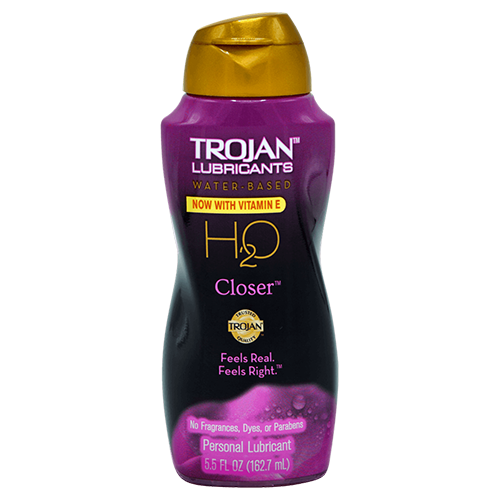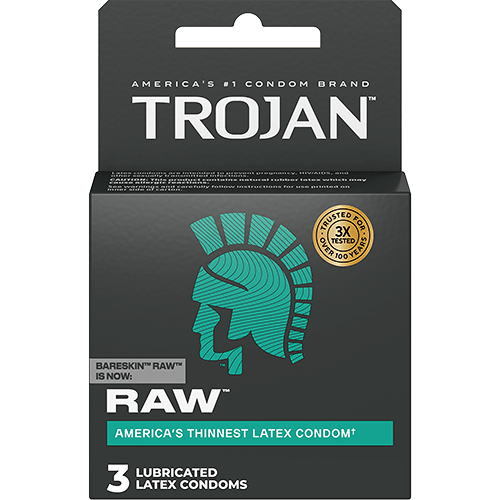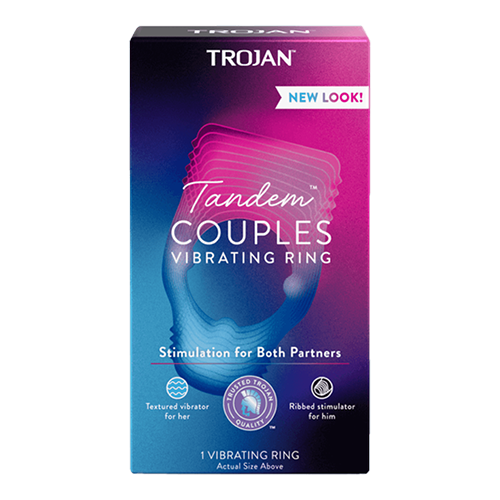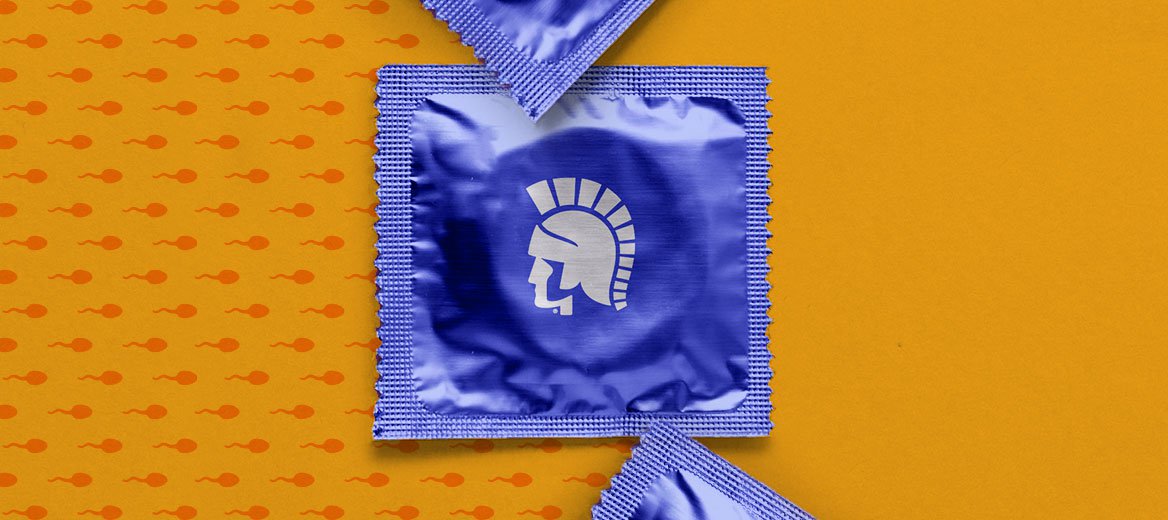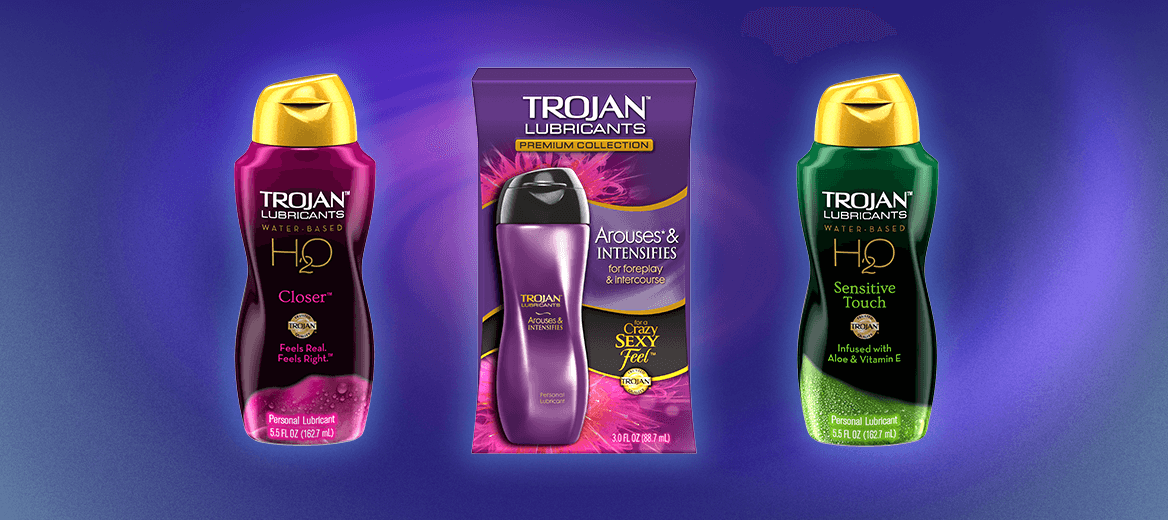Health + Wellness
Why does sex hurt sometimes?

Sex is supposed to feel good, and most times, it does. If sex does hurt—either during or after—there’s likely a reason. This article will explore some of the issues that can cause sex to hurt and offer some tips that might help. If you continue to feel pain from sex in your vagina, penis, uterus, or lower abdomen, talk to your healthcare provider.
What is a normal amount of pain during sex?
Sex isn’t supposed to hurt. An awkward position might cause momentary discomfort and one or both partners might be bothered by friction if there isn’t enough lubrication, but we shouldn’t normalize pain during sex.
Some people (especially people with vaginas) may have been led to believe that it’s okay for sex to hurt most of the time. But it is just the opposite. Pleasure during sex should be the norm and painful sex should be seen as a signal that something is not right.
Can both partners feel pain during or after sex?
Yes, any partner—regardless of gender or biology—can experience painful sex—during intercourse or after. Pain tends to be more common for people with vulvas, but anyone can experience painful itching, burning, or irritation on their genitals.
If you have a vagina or uterus, you may have lower abdominal or vaginal pain during or after sex. People with penises may also feel pain in or near their scrotum during or after sex. Especially vigorous sex can sometimes become painful if the penis gets bent while erect, or penetration goes too deep or hard.
Pain can also happen with anal sex— especially if you didn’t use enough lube. The anus is very sensitive and does not create its own lubrication, so the skin can tear during penetration, causing pain and bleeding after sex. Plus, the anal sphincter is a muscle that might not be used to stretching which can also cause anal sex to be painful.
Why can sex be painful?
Painful sex can be a sign of medical issues (like STIs, UTIs, or a yeast infection), relationship issues (like lack of trust or desire), or mental health issues (like depression).
Sex can also be painful because of technique. It’s not that you’re doing it wrong, it’s just that what makes one person tingle with joy might make another feel rubbed raw. Talk to your partner about what feels good and what makes you want to scream in a bad way, and switch things up if needed.
And use a lot of lube. This cannot be stressed enough (which is why you’ll see it repeated a number of times below)—no matter what body parts you have or what activities you get into, sex can feel better when it’s wetter.
Why do I have vaginal pain during or after sex?
The most likely cause of painful intercourse is a lack of lubrication. Many people with vaginas simply don’t produce enough natural lubrication to prevent the friction of sex. This doesn’t mean there is something wrong with you, it just means you can benefit from adding lube.
Other issues that cause itching, burning, pain on the vulva or inside the vagina include yeast infections, urinary tract infections (UTIs), or STIs like chlamydia or gonorrhea. These conditions, and others, irritate the sensitive skin in the area which can make sex hurt.
Pain on penetration can also be a function of the muscles at the opening to the vagina. These muscles can start to spasm (a condition called vaginismus) which can make it difficult to put a penis, sex toy, or even a finger into the vagina.
There might be some practical issues as well. Maybe sex went on too long, penetration was too hard or too fast, or maybe you weren’t turned on enough when it started. Size can also matter—if your partner has a very large penis or you’re using a very large sex toy, you may feel extra friction, and the muscles in your vagina have to stretch farther which can cause some pain.
Why does my penis hurt during or after sex?
People with penises can have similar issues—if sex goes on for a really long time or penetration is very vigorous, the skin on the penises can get irritated. If you’re using a condom and experience skin irritation, it is possible that you have a latex sensitivity and should consider using a polyurethane condom instead.
People with penises can also get yeast infections, UTIs, and STIs that cause itching, burning, and pain during sex. Uncircumcised men may also experience conditions that make the foreskin difficult pull to back. This can be painful and cause small tears in and around the area that hurt when touched.
Why do have I lower abdominal or stomach pain after sex?
It could be a question of physics; if a penis or sex toy is thrust deep into the vagina, it can hit the cervix (the bottom of the uterus) which can cause pain and cramping.
Internal pain during or after sex could also come from the uterus or ovaries. Health conditions like pelvic inflammatory disease, ovarian cysts, or endometriosis can also cause cramping during or after sex.
People with penises are less likely to have abdominal pain with sex but may feel pain, heaviness, or swelling in their testicles or groin. This could be a sign of inflammation of the prostate gland or of an STI like chlamydia.
What does bleeding during or after sex mean?
For people with vaginas, a little bit of bleeding during sex can happen. If it happens frequently, however, it could be a sign of a medical issue that needs attention.
The first time someone experiences penis-in-vagina (PIV) sex they may tear their hymen (a small bit of skin at the opening to the vagina) which can bleed a little or a lot. If it’s not your first time, blood could simply be part of menstruation—the last drops of a period you thought was over or the first drops of a period that showed up at the worst possible moment. Some methods of contraception can also cause spotting at any point during your cycle.
Your cervix can also bleed after sex especially if it was touched during the act by a penis or sex toy. This could be harmless, or it could be an indication of a cervical infection or polyps on the cervix.
A little bit of bleeding after anal sex is also pretty common. The sensitive skin around the anus can get little tears (called anal fissures) during penetration.
How to reduce pain during sex and amp up the pleasure?
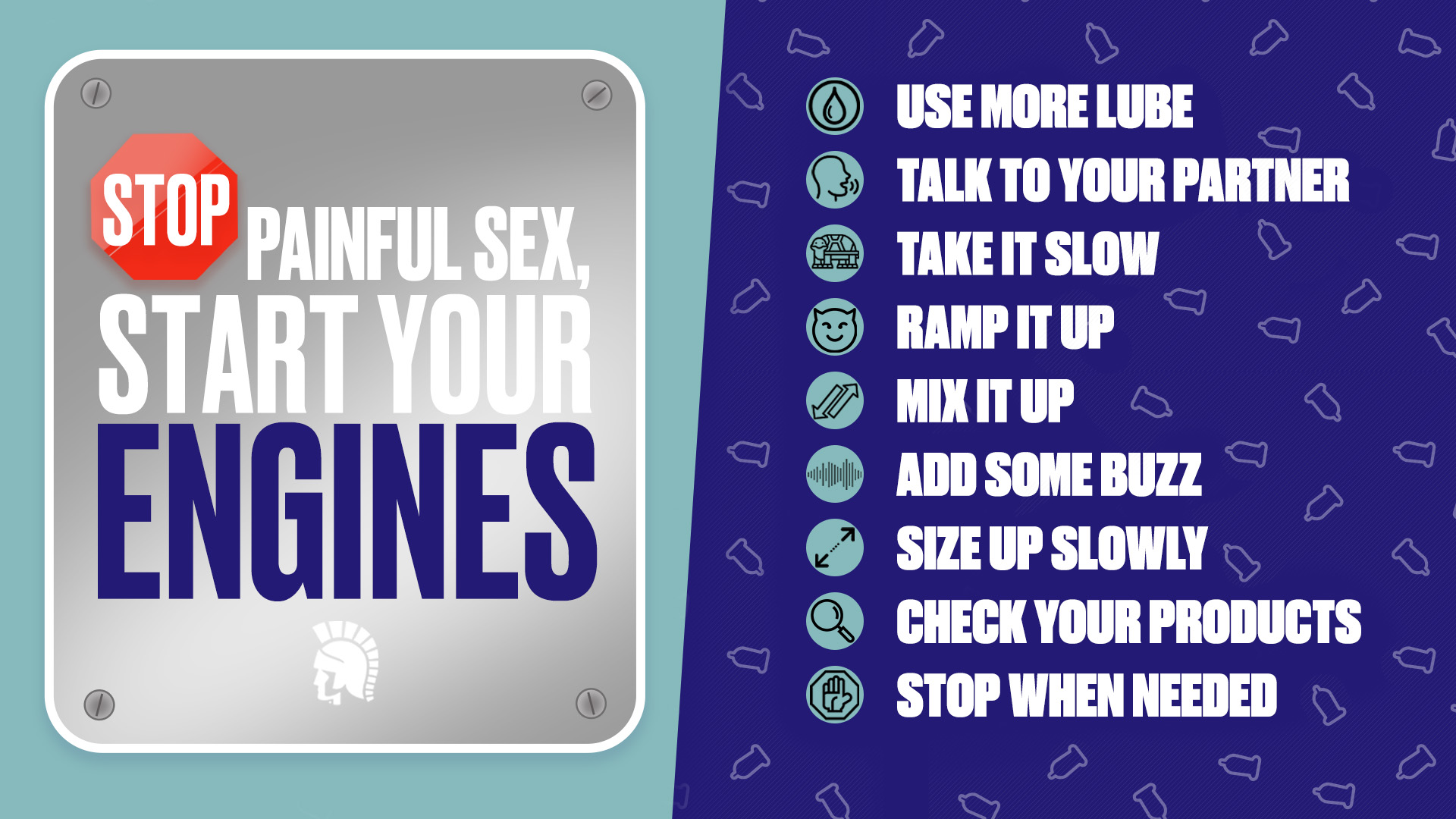
Every sexual encounter is not going to be earth-shattering, but pain is not a normal part of sex. If you or your partner are hurting during sex, stop and think about what you can do that could make it feel better. Here are some ideas that might help:
Use more lube. You’ve heard this many times, but lube is really that important. Pain during sex is often a result of dryness and friction. Adding lube makes everything smoother, silkier, and slipperier. And that makes everything sexier. If you’re using condoms, you can add lube to the inside and outside of the condom to benefit both partners.
Talk to your partner. It can be hard to tell a partner that sex is anything but great. You don’t want to hurt their feelings, after all. But suffering in silence about pain during sex is not the answer. Tell your partner what hurts and where so you can work together to make sex feel better.
Take it slow. Once you’ve experienced pain during sex, you might start to worry that it will happen again. When you worry, your muscles tense up and that can make sex more painful – especially if penetration is involved. Take it slow and talk to your partner as you go.
Ramp it up. Foreplay is important. Your body does a lot of cool things to prepare for sex as you get turned on—your skin gets warm, your nipples get hard, and blood rushes to your genitals which makes penises hard and vaginas wet. These are all important parts of the process that can help you relax and get ready. Skipping foreplay can mean you or your body isn’t quite prepared for what’s happening and that can lead to more pain.
Mix it up. If something you’re doing hurts, try something else. A new position might be enough. People with vulvas might prefer to be on top during penis-in-vagina sex because they have more control over the speed and depth of penetration. Or take a break from PIV sex and go for oral (being on top can help here too because you can control the pressure of your partner’s tongue).
Add some buzz. Using vibrating toys—on the vulva or in the vagina—can help add new sensations and relax muscles. Use them as part of foreplay or make them the main event. People with vulvas who have mild pain on penetration may enjoy vibrating rings. These go over a partner’s penis and can provide clitoral stimulation and distraction which can also help the muscles relax to be ready for penetration, if that comes next.
Size up slowly. The vagina is a muscle and, like other muscles, it sometimes resists being stretched which can make intercourse difficult especially if your partner has a large penis. You can try experimenting with fingers (yours or your partners), move on to small sex toys, and then larger sex toys before going back to PIV. Think of it like a stretching class for your vagina.
Check your products. Sometimes the extra sensitive skin of our genitals is extra sensitive to products whether it’s a scented soap or a flavored lubricant. Think about everything you put on your vulva or penis and consider trying something new instead. If you’re using condoms, you should know that some people are sensitive to latex. If you think that’s part of the problem, try switching to a polyurethane condom like Trojan™ Raw™ Pure Feel™ Non-Latex.
Stop when needed. If sex hurts, call a timeout and talk to your partner. You might want to stop for a few minutes, change positions or activities, or just a call it a night and wait for things to feel less irritated. If your partner asks you to stop because it hurts, you have to respect that and let them take the lead on what happens next.
When should I be concerned about sex hurting?
As with any other health condition, you have to ask yourself how much it hurts, how often, and for how long. Fleeting discomfort during or after sex once and awhile is probably not a big deal, but if it hurts every time or the pain doesn’t go away, it’s time to see a doctor.
You Don’t Have to Put Up with Pain During Sex
Sex is supposed to be fun and enjoyable. If pain is getting in the way of you having a good time, don’t ignore it or put up with it. And don’t just avoid sex. Talk to your partner. Experiment with some new positions and activities. If it still hurts, find a health care provider who can help.

